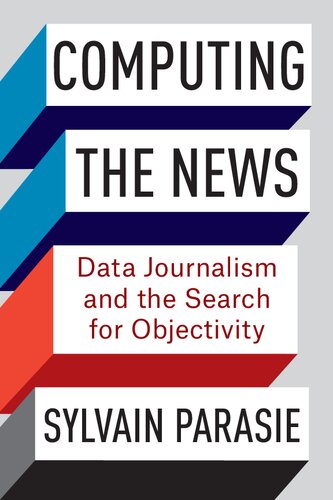

Most ebook files are in PDF format, so you can easily read them using various software such as Foxit Reader or directly on the Google Chrome browser.
Some ebook files are released by publishers in other formats such as .awz, .mobi, .epub, .fb2, etc. You may need to install specific software to read these formats on mobile/PC, such as Calibre.
Please read the tutorial at this link: https://ebookbell.com/faq
We offer FREE conversion to the popular formats you request; however, this may take some time. Therefore, right after payment, please email us, and we will try to provide the service as quickly as possible.
For some exceptional file formats or broken links (if any), please refrain from opening any disputes. Instead, email us first, and we will try to assist within a maximum of 6 hours.
EbookBell Team

4.8
24 reviewsFaced with a full-blown crisis, a growing number of journalists are engaging in seemingly unjournalistic practices such as creating and maintaining databases, handling algorithms, or designing online applications. "Data journalists" claim that these approaches help the profession demonstrate greater objectivity and fulfill its democratic mission. In their view, computational methods enable journalists to better inform their readers, more closely monitor those in power, and offer deeper analysis.
In Computing the News , Sylvain Parasie examines how data journalists and news organizations have navigated the tensions between traditional journalistic values and new technologies. He traces the history of journalistic hopes for computing technology and contextualizes the surge of data journalism in the twenty-first century. By importing computational techniques and ways of knowing new to journalism, news organizations have come to depend on a broader array of human and nonhuman actors. Parasie draws on extensive fieldwork in the United States and France, including interviews with journalists and data scientists as well as a behind-the-scenes look at several acclaimed projects in both countries. Ultimately, he argues, fulfilling the promise of data journalism requires the renewal of journalistic standards and ethics. Offering an in-depth analysis of how computing has become part of the daily practices of journalists, this book proposes ways for journalism to evolve in order to serve democratic societies.